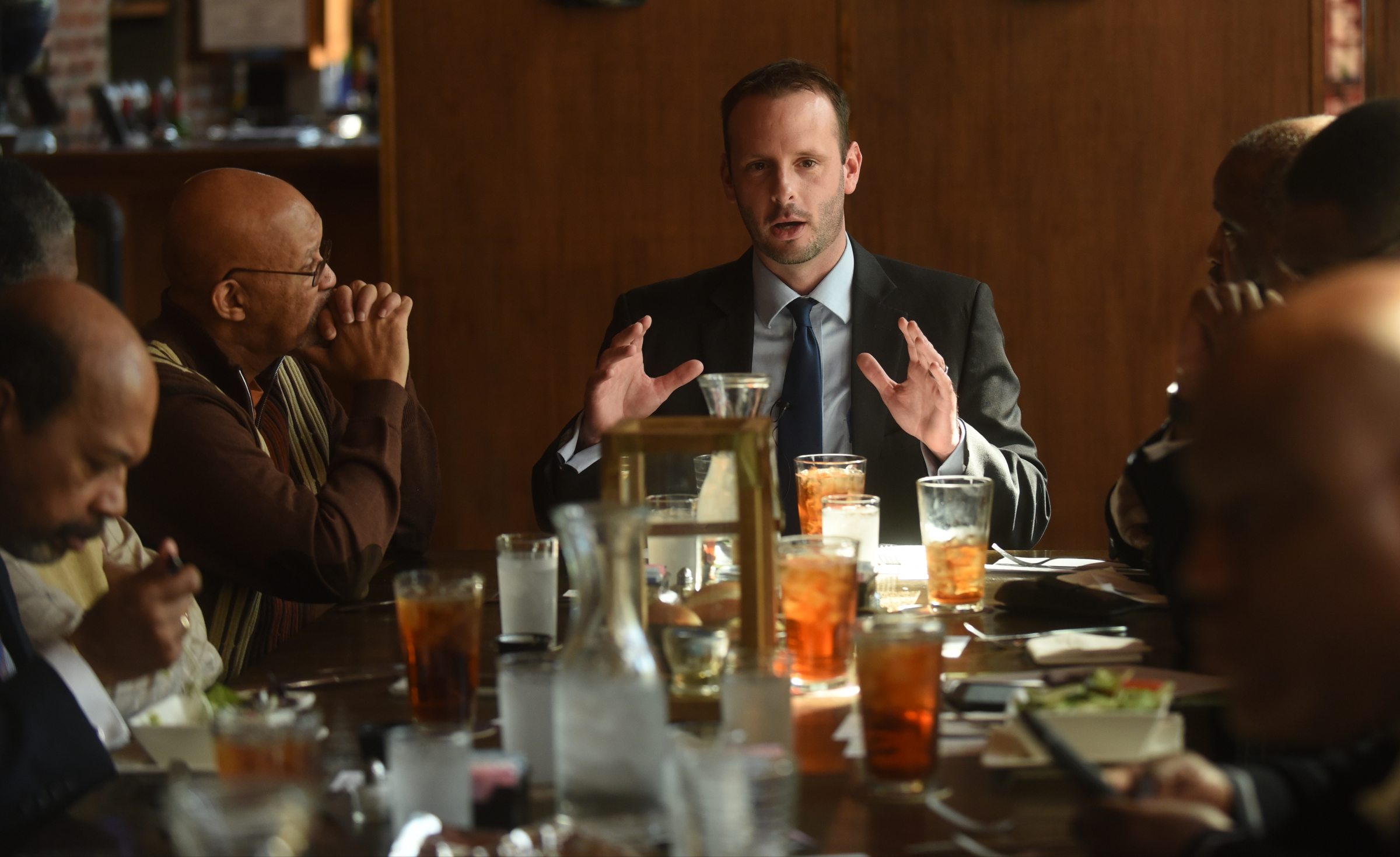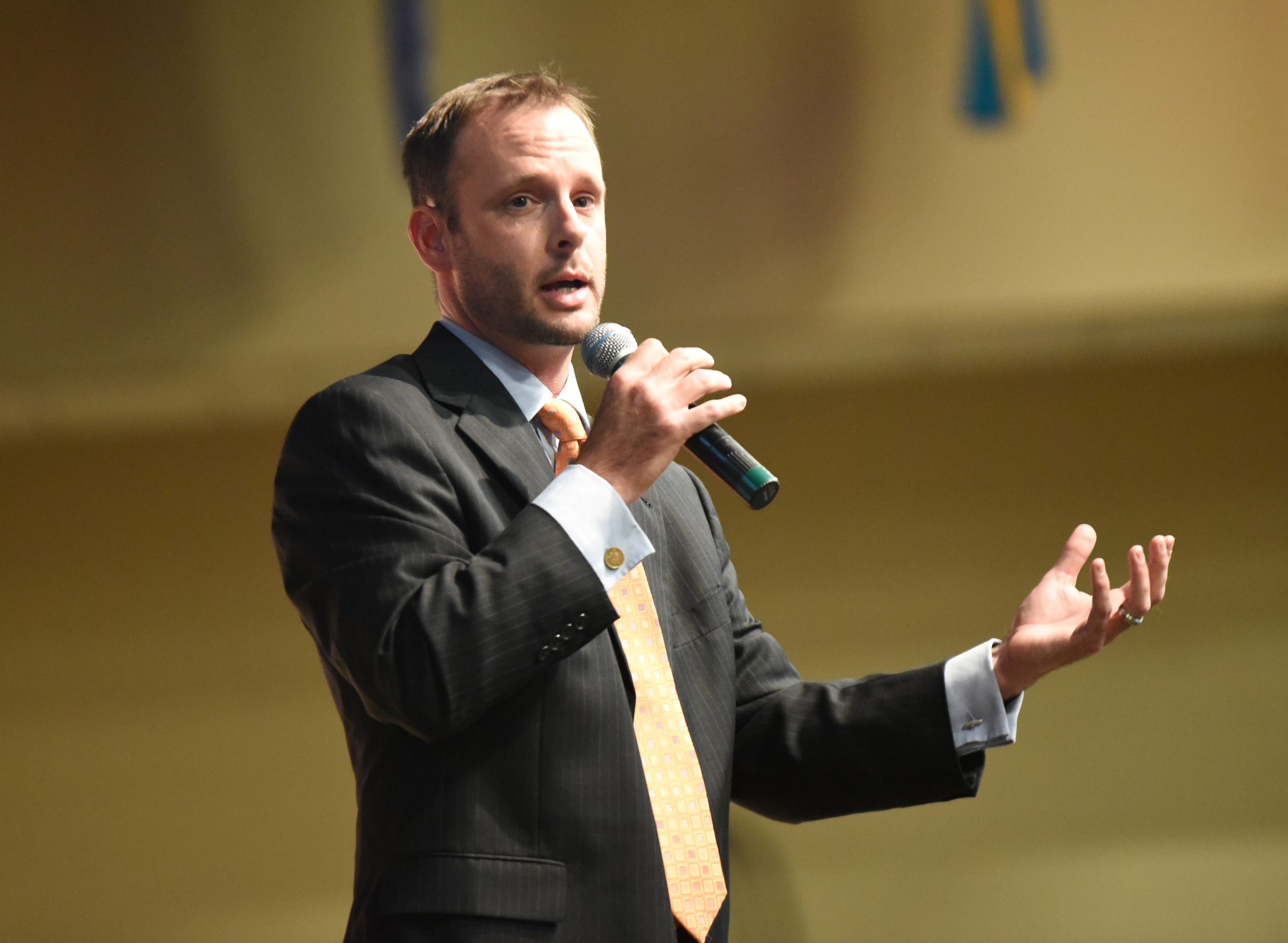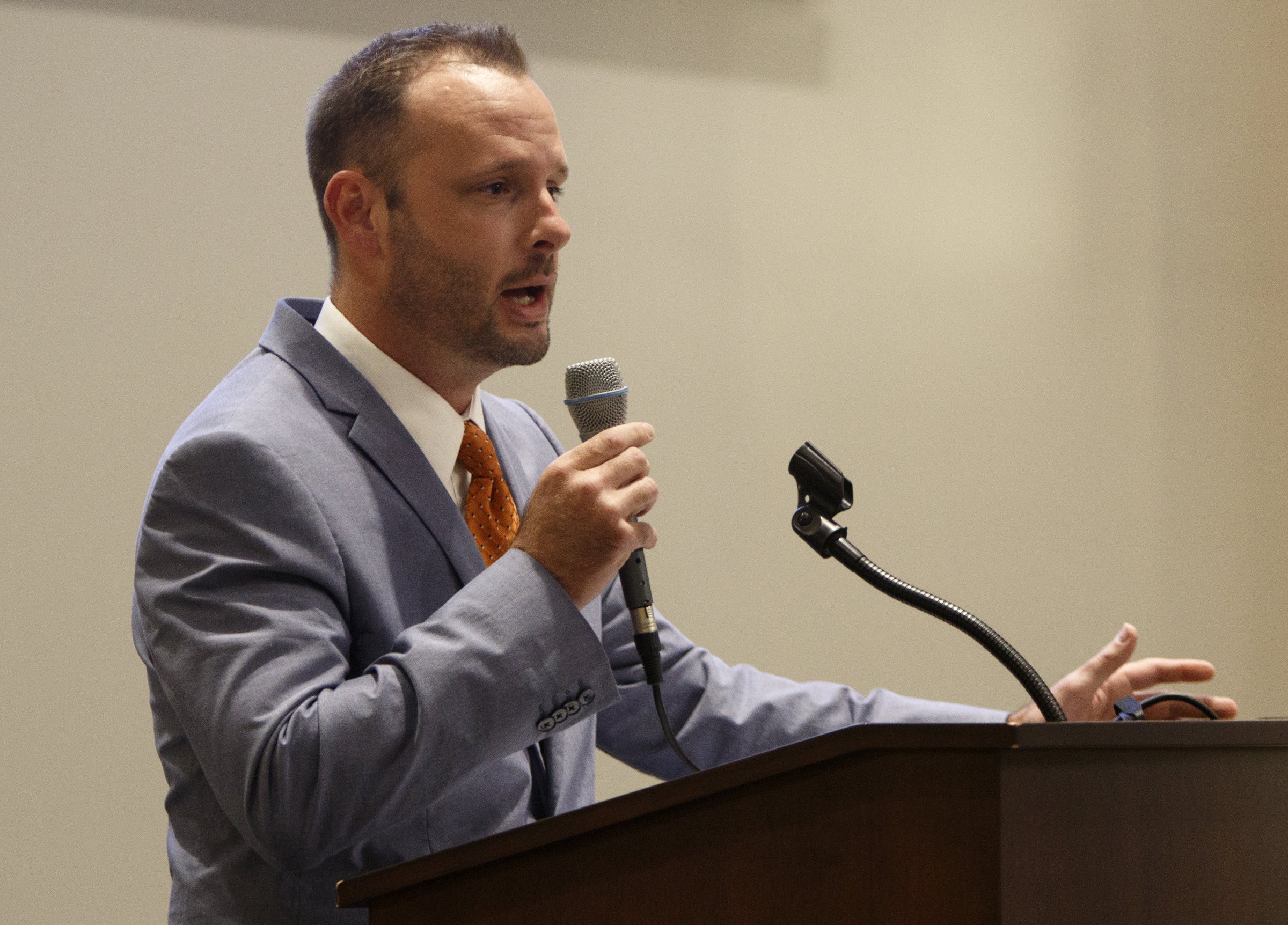Jared Bigham is leaving his role as executive director at Chattanooga 2.0 to join the Tennessee Chamber of Commerce and Industry as senior adviser for workforce and rural initiatives later this month, leaving the direction of Chattanooga 2.0, the city's hallmark education coalition, a little cloudier.
Chattanooga 2.0 is the city's innovative collaboration of local businesses, nonprofit organizations and industry leaders formed to tackle the region's biggest education challenges. It was founded in 2015 by four partners - the Benwood Foundation, the Chattanooga Area Chamber of Commerce, Hamilton County Schools and the Public Education Foundation.
Bigham said he is proud of the work Chattanooga 2.0 has done in the past two years but is also looking forward to his new position with the state chamber.
"This is a good inflection point for the 2.0 work, as it evolves to reflect the needs of the community," he said. "And this exciting opportunity became available, and rural community work is a big part of where my heart is."
Chattanooga 2.0 has championed efforts around student access to post-secondary opportunities and workforce development as one of the early partners of Hamilton County's Future Ready Institutes, early childhood initiatives such as Camp K and the launch of the Chattanooga Basics and other efforts to convene action teams for specific areas.
Yet, it is unclear if Bigham will be replaced or how his departure will affect the structure of the organization.
Christy Gillenwater, president and CEO of the Chattanooga Area Chamber of Commerce, said the organization was "really poised to take [its] efforts to the next level," but also acknowledged that some structural changes were possible as the organization reflects on where it's at and the needs of the community now.
"A lot has changed since 2.0 was founded," Gillenwater said. "A lot has changed at the district. There is new, strong leadership there under [Superintendent] Dr. [Bryan] Johnson and less of a need for change there. Instead, let's hold them up and support them."
Since its founding, 2.0 has been focused on addressing educational needs from "cradle to career," but the chamber has been doubling down on workforce development and talent pipeline issues recently and Gillenwater sees that as a potential, more-focused direction for 2.0 as it approaches the 2025 deadline to achieve its original bold goals - to double the number of Hamilton County graduates who obtain a post-secondary degree or credential and to increase the percentage of adults in Hamilton County with a college degree or certificate to 75 percent.
"We set those goals with 2025 as a deadline," she said. "There has to be in my opinion more of a focus on how to reach those bold goals. We'll have to double down. But I'm excited to see our partners come together."
Sarah Morgan, president of the Benwood Foundation, said she was not worried at all, though. Morgan said the founding partners were grateful for Bigham's leadership and help in establishing the organization, and that his departure presents a great opportunity.
"Making something from nothing is hard work, and Jared should be incredibly proud of the work that he and his team have done," Morgan said. "This is a great opportunity for us to take stock of where we are and see who has the right skill set and energy for the position going forward."
Morgan also acknowledged the dozens of partners and leaders engaged in 2.0's work since its launch, such as Gillenwater and Johnson.
"We've got some strong leaders now that we didn't have in the beginning," she said.
Dan Challener, president of the PEF, said he believed the founding partners and other community partners are more in alignment now than ever before.
"What 2.0 has is a very clear vision of what the ultimate goal is, as well as 10 strategies that we have all agreed to and are working on that will stay the same even with Jared's departure. That keeps our eye on the North Star," Challener said.
He acknowledged the work Bigham has done to help establish that foundation, though.
"Jared has done a terrific job really beginning Chattanooga 2.0, attracting people to the work and communicating and engaging with partners," he said. "He helped frame this incredibly important challenge to our community: how we can become the smartest city in the South and attracted different people and organizations."
Others agree Bigham's leadership in the community will be missed.
"I consider the news of Dr. Bigham's departure to be a massive blow to Chattanooga 2.0 and to our community," said David Steele, director of civic engagement at the University of Tennessee at Chattanooga and member of 2.0's steering committee. "His experience, his expertise, and his unique aptitudes were all vital to the movement's success to this point. In fact, as far as I'm concerned, it's hard to overstate how crucial his leadership has been. He had a real heart for this work, and he poured himself into it relentlessly and without reservation. Obviously, the work must go on. I can't imagine how we could possibly replace Jared, but if we do our best to live up to his example, our community will be better off."
Bradley Jackson, president and CEO of the Tennessee Chamber and the Tennessee Manufacturing Association, announced Bigham's appointment to his new role, which is an effort to bolster rural workforce development initiatives across the state - a priority of new Tennessee Gov. Bill Lee.
"With our statewide reach, we've spent the past two years listening carefully to local industry, chambers of commerce, and economic development partners. What has become increasingly clear is, if we are going to continue to help our employers succeed and attract the kind of jobs we all want in Tennessee, we must address their critical need for more skilled workers," Jackson said in a statement. "With Governor Lee's vision and leadership in this area, we think Tennessee can quickly become the national leader in creating and enhancing the technical training that employees want and that local industry must have to compete."
Last week, Lee signed his first executive order requiring all 22 state executive departments to assess their current impact on distressed rural areas, along with providing recommendations on how they will accelerate plans to serve rural Tennesseans better.
Access to opportunities and post-secondary training is one of the foremost issues in rural areas of the state, Bigham said. Before joining 2.0, Bigham worked as a teacher and principal in Polk County and served as executive director of the Tennessee Rural Education Association.
"I hope we have some concrete and tangible results in rural, distressed counties that connect students and young adults to the job opportunities that are in or within commuting distance," Bigham said. "Our goal is to create more market-value credentials and specific pathways to better-paying jobs, particularly in our rural communities and distressed counties."
Contact staff writer Meghan Mangrum at mmangrum@timesfreepress.com or 423-757-6592. Follow her on Twitter @memangrum.



